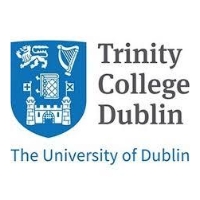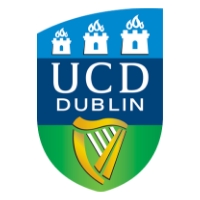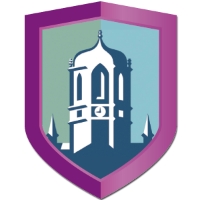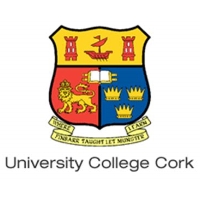- +91 22 23526372
- kgc@karangupta.com
Known as the “Emerald Isle”, Ireland is a beautiful country with both a pristine countryside and modern cities, all alongside an ancient Celtic history. This safe, English- speaking country is renowned for its friendliness and hospitality and welcomes over 35,000 students annually from all over the world. Ireland is the only English speaking country in the entire Eurozone and the Irish government invests millions of euros in academic research and development each year. Ireland has a world-class education system and students who study in Ireland find it to be a safe and welcoming country.
Ireland is an English-speaking country with excellent transport links to the rest of Europe, and a land border with the UK at Northern Ireland. The climate is mild and the country has a reputation for hospitality and friendliness. International students are warmly welcomed.
Ireland has an excellent education system and its top universities hold world-class reputations. Ireland’s economic expansion as part of its entry into the Euro has seen massive investment in academic research and some of the best and most modern educational facilities in Europe.

Trinity College Dublin, a research university was founded by Queen Elizabeth I in 1592. It is the oldest surviving university in the country and is the top-ranked university in Ireland according to the QS World University Rankings 2021. The university offers courses in Law, Humanities and Literature, etc. Oscar Wilde, Bram Stoker, William Cecil Campbell, Jonathan Swift and George Berkeley are amongst the notable alumni.

University College Dublin, popularly known as UCD, was originally founded in 1854. It is the second-ranked university in Ireland according to the QS World University Rankings 2021. It offers programmes in business, arts and humanities, engineering and architecture, health and agricultural sciences amongst others. James Joyce, Neil Jordan, Sean Macbride and Peter Sutherland are among the notable alumni.

The National University of Ireland Galway located in Galway, was founded in 1845. It is the third-ranked university in Ireland according to the QS World University Rankings 2021. The university offers courses in Computer Science, Business and Economics, Education, Health Sciences and English and Creative Arts amongst others.

University College Cork was founded in 1845 and is located in Cork, Ireland. It is the fourth-ranked university in Ireland according to the QS World University Rankings 2021. The university offers courses in humanities, architecture, medicine and health amongst others at the undergraduate and postgraduate levels.
IELTS: Preferred for proving English language proficiency; generally required with a minimum score of 6.5.
TOEFL: Accepted as an alternative to IELTS; usually requires a minimum score of 90.
PTE: Also accepted; typically requires a score of around 63.
GRE/GMAT: Required for certain graduate programs, particularly for business or technical courses.
Many programs require an essay or statement outlining your academic interests, career goals, and reasons for choosing the particular course and institution.
A detailed CV highlighting your academic achievements, extracurricular activities, and any relevant work experience.
Some programs may require an interview, either in person or online, to assess your suitability for the course.
A current passport valid for the duration of your stay in Ireland.
The first step is university selection. Based on your profile and the course you wish to study, Dr Gupta will personally mark a list of universities for you. Keeping this list in mind, we will be able to determine the requirements for applications. After you have finalized your university list, you can move on to the next step.
A few months after your application has been submitted, universities will get back to you with their answers. You will be notified over email or university website about the outcome of your application. We will discuss these outcomes with you in detail and keep your priorities in mind, we will arrive at the university which you will be attending.
Once your visa application is accepted, before you leave to study abroad we have a pre departure workshop where we talk to you about insurance, loans, ticketing, medical requirements and other issues. The pre-departure session along with a networking session will help you prepare for every aspect of studying abroad you will initially come across when you fly to your university.
Average tuition fees are about €25,000 per year and average living expenses are about €10,000 per year. Each university has its own requirements and fee structure. Fees vary from institute to institute and some programs including an MBA have higher fees.
Scholarships, grants, and bursaries are available for international students at the undergraduate and postgraduate level. Such awards are determined by the individual institutions and are awarded based on an overall assessment of a candidate. It’s important that you prepare a strong application to maximize your chances of being awarded part of full funding for your study in Ireland.
Students from India can get education loans from state banks for up to Rs.2.5 Million. Security of up to 100% of the loan amount will be needed and the repayment period varies from 5-7 years. Please contact individual banks for more information.
The cost of living in Ireland for international students typically ranges from €8,000 to €15,000 per year, depending on the city and lifestyle. Here's a breakdown:
The most expensive city, with costs ranging from €12,000 to €15,000 annually. Rent is higher, and general living expenses are elevated.
Generally more affordable than Dublin, with estimated costs between €10,000 and €13,000 per year. Rent and living expenses are lower compared to Dublin.
Offers a relatively lower cost of living, with annual expenses ranging from €9,000 to €12,000. It's known for a more budget-friendly lifestyle.
One of the more affordable options, with costs ranging from €8,000 to €11,000 per year. Rent and general expenses are lower compared to the larger cities.
These estimates cover rent, food, transportation, and other personal expenses. Prices can vary based on individual lifestyle choices and accommodation type.
The student visa for Ireland requires that you apply with all your financial papers to the Embassy of Ireland. You would need to show that you can pay for your entire education through liquid assets and also include copies of your income tax returns and other financial papers. In addition to this, your academic results are also needed. You will have to submit your medical records in order to complete the process. In most cases, an interview will not be required. The application process is time-consuming and students are encouraged to apply early. When you arrive in Ireland you will be required to register with the immigration office.
Students are permitted to work part-time while studying and can often cover their living expenses. Graduates have the option to stay in Ireland after they have completed their studies and may seek employment under the Irish work permit scheme. Do keep in mind though that getting jobs in Ireland as a non-EU citizen may not be easy due to the size of the economy.
Why pursue master’s in the UK? World-Class Education: The UK is h...
Why study master’s in Australia? Australia is one of the top destinatio...


